Ingo Ospelt trained as an actor at the Schauspielakademie Zürich, now ZHdK, from 1981 to 1984. He then spent seven years in Germany working in various city theatres before returning to Zurich with his family in 1992. There he began to work as a freelance actor in the independent theatre scene, at various municipal theatres in Switzerland and as a film actor and narrator. At that time he also co-founded the TRIAD Theatercompany Zurich and in Liechtenstein, together with his brother Mathias Ospelt and with Marco Schädler, the cabaret ‘Das LiGa’ aka ‘OOS’. Ingo Ospelt has been working as a professional actor for 35 years, mainly on the theatre stage and in recent years more and more often as a film actor. In June this year he shot a Swiss feature film and rehearsed for a play that premiered in October at the Landestheater Vorarlberg in Bregenz. At the moment he and his wife Eveline Ratering are in preparation for a new theatre production that will premiere in the 2021/22 season. Ingo Ospelt likes nature, likes to move, is interested in visual and performing arts, literature and music and has been an enthusiastic ‘Neni’ (grandfather) for three years. He grew up in Vaduz and lives in Zurich. He will soon be 60 years old.
Where and how did you grow up?
I spent my childhood with my parents and my brother at my maternal grandparents in Vaduz. Mutti and Vati, as we called our grandparents, had moved to Vaduz from northern Germany in the 1950s. High German was spoken with my grandparents and living together was very much oriented towards their northern German way of life.
My father’s parents, my Nana and my Neni and most of my Vaduz relatives lived below in the village, Im Stöckler,
On both sides were people interested in literature: my grandfather from Hamburg saw himself as a descendant of the famous Lying Baron von Münchhausen, while my Nana Ida was a dialect poet and chronicler of the old Vaduz. I grew up within this cultural tension.
The proximity to the forest was very formative for me, school was interesting more from the social aspect, and confessionally I was brought up in the Roman Catholic tradition: the liturgical occasions, the processions, the rituals impressed me the most; however I went to the May devotions not so much because of the services, but because you could meet the girls here.
Drawing, storytelling and role-playing were the most important pursuits of my childhood. Later, as a teenager, sports and music were added.
I had a very rich and colourful childhood, with a large circle of friends, caring adults, numerous relatives from near and far and half a dozen pets.
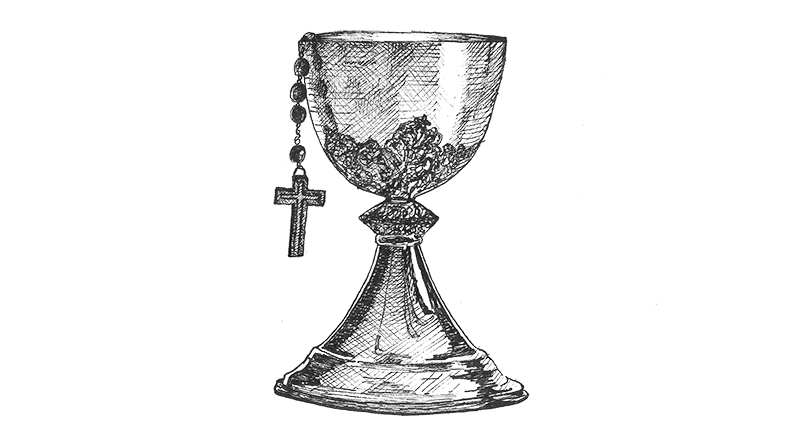
Could you describe your professional background?
As a child I tried very early on to appropriate the world through my own stories. ‘Ingo, you’re going to be a storyteller’, a friend’s mother once said because I have always loved to invent and tell stories (sometimes to the chagrin of my long suffering environment).
At grammar school I took part in a school play for the first time, ‘Sleeping Car Pegasus’ by Thornton Wilder – not an easy play for 13-year-olds – but through the school theatre I began to engage more and more deeply with theatre.
After graduating from high school in 1981 I attended the Zurich Drama Academy. In December 1984 I received my acting diploma and, after a short detour as a guest at the Basel Theatre, I went to Germany for seven years where I worked at various municipal theatres.
In 1992 my wife and I returned with our children to Zurich, where I have lived and worked ever since: as an actor in theatre, for film and television, as a narrator for radio plays and commentary, as a cabaret artist, as a director and as a sparring partner for coaching seminars.
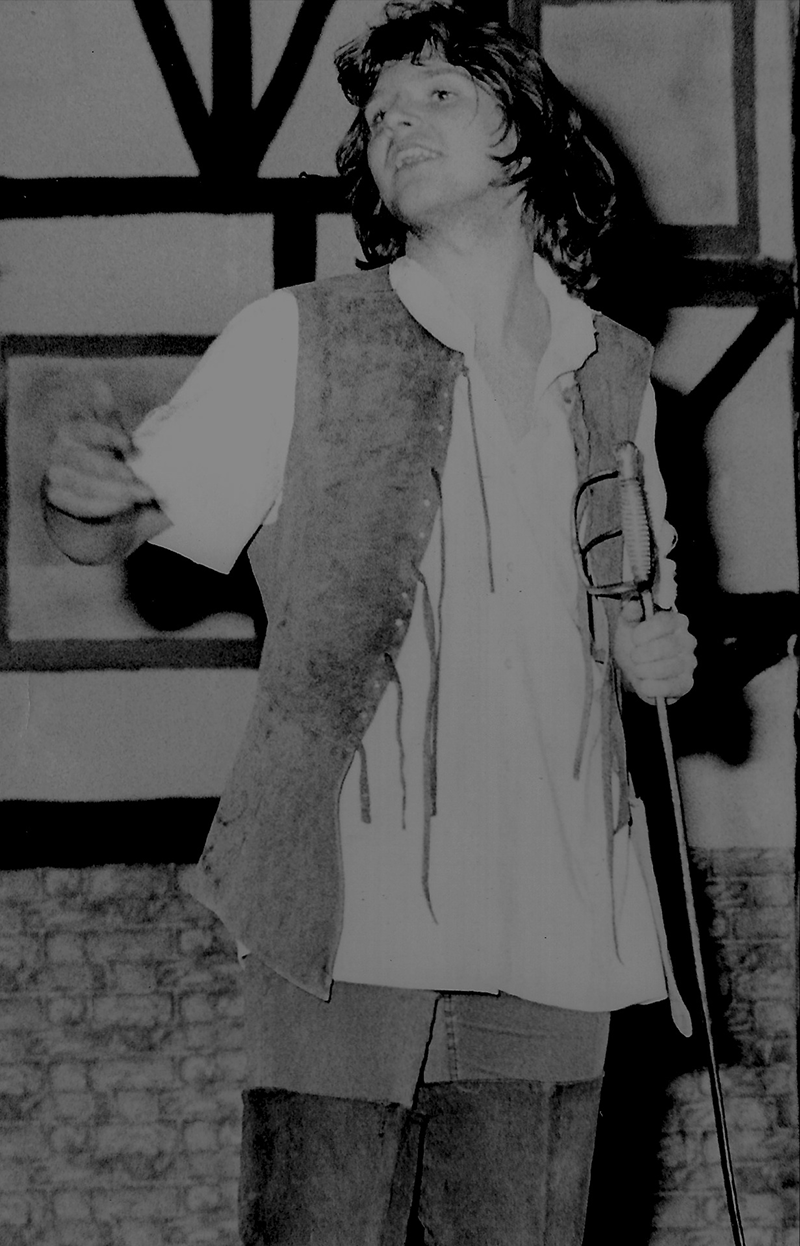
Were there certain events or stations that were formative for your career?
Going to the cinema was one of the most beautiful things for me, even at a very early age. When it gets dark in the cinema and the audience suddenly falls silent, there is something magical about it, and I still feel that way today. The selection in the Vaduz cinema wasn’t too big, but that didn’t dampen my enthusiasm.
The first film I saw at the cinema was Flipper, then came various Disney films and at some point, secretly of course, I attended my first James Bond flicks. The classic was ‘Goldfinger’ with Gert Fröbe in the title role. And this Gert Fröbe appeared one day in the auditorium of the grammar school with his famous Morgenstern programme.
To experience the actor of ‘Goldfinger’ on stage was an event in itself, to experience him as a great reciter was even more impressive. After he had finished his programme he turned to us students, more or less as a private person, and told us about his life and his career as an actor; how he had started out as a stagehand and then worked his way up to becoming an actor step by step. His drive to become an actor, he told us, was his enthusiasm for stories, for characters and for language.
I shared this enthusiasm with Gert Fröbe – but at that time I would not have dared to express my desire to become an actor, if only because I had a hard time memorising.
But my enthusiasm for theatre grew stronger a few years later in the school theatre. It was the intense collaboration in a group that excited me. I got to feel a passion for the work that I had never experienced before. I wanted to have more of that.
And so in the summer of 1981, two days after my Matura, I took the entrance exam for drama school. After three and a half years of training at the Schauspielakademie Zurich, with all the ups and downs that one experiences in such a training, followed seven years of teaching and travelling in Germany at various municipal theatres.
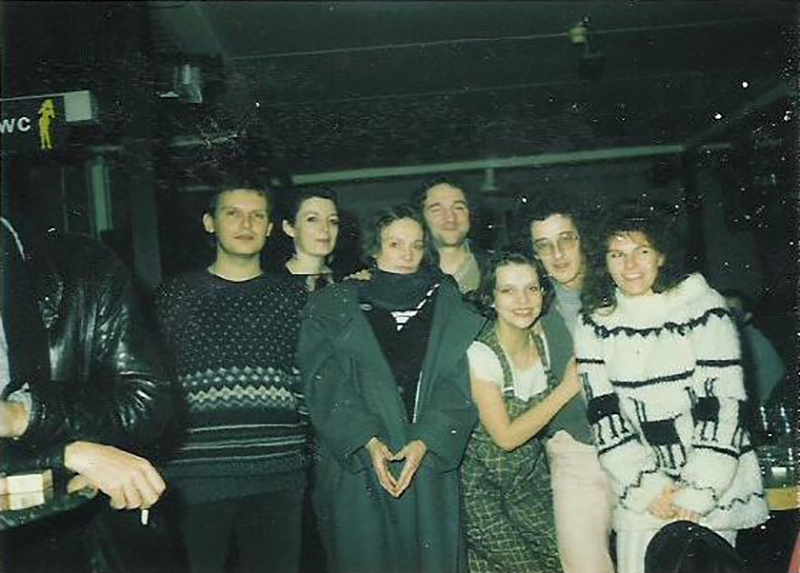
After seven years on German stages my family and I returned to Zurich in 1992 for family and artistic reasons.
An important and decisive impulse to give my professional life a new direction was the private view of an artist friend. In the exhibition he showed works on a theme he had been working on for a good 10 years.
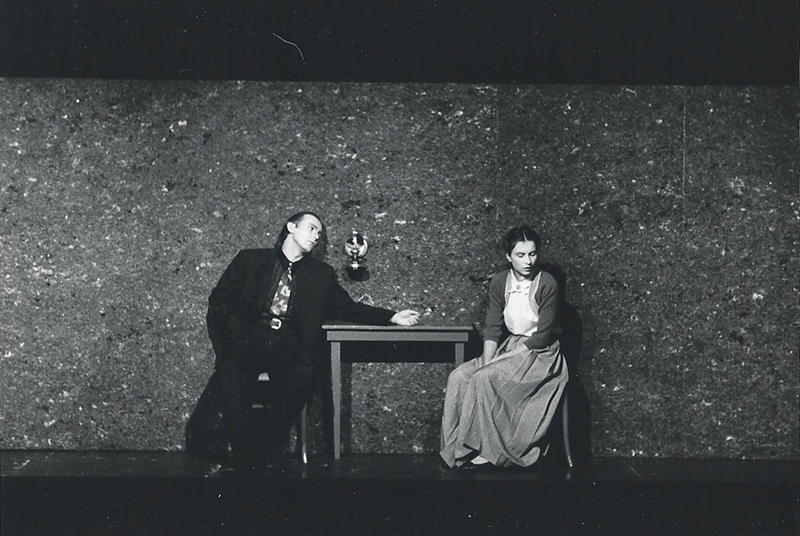
I was very enthusiastic about the idea of working artistically on a question for a longer period of time as a theatre maker. I wanted to work in this way, I wanted to work intensively on a work, on a theme, on a project and not just continue to be a secondary agent in a theatre company. I wanted to get away from the mainstream of the municipal theatre.
And that meant in concrete terms no longer being dependent on a theatre management that functions hierarchically, where I am told via the information board in the theatre which role I will play next.
As a municipal theatre actor rehearsing a new production every five to seven weeks, possibly being handed the new play on the evening of the premiere, which was supposed to start rehearsals the day after the premiere, playing the plays in the repertoire, rehearsing other plays in parallel – today ‘Hamlet’, tomorrow ‘Auntie Jutta from Calcutta’ and the day after tomorrow an evening about misery in the Third World; arbitrary, random, uninspired – a programme that had to satisfy the wishes of the patrons above all – I didn’t want that any more.
In Zurich the style of work changed; at the Zurich Children’s and Youth Theatre KITZ, where we were a small ensemble and determined all project and personnel decisions on a grassroots democratic basis, I felt very much at home. We worked in a self-determined way, gave ourselves a lot of time for research, worked with specialists in the run-up to the production (psychologists, experts, but also with children etc.), took part in workshops together where we learnt specific skills that we needed for the realisation of the different productions. Interesting performances were created and we were invited to different festivals at home and abroad, to France, to Germany and to Burkina Faso, to the ‘festival de théâtre pour le développement’. We worked in co-productions with Italian, West African and German partners. It was a very happy time, especially because we were able to organise our family life much more carefully and freely. The KITZ was a theatre where children had a place as a serious reality in the lives of the ensemble members.
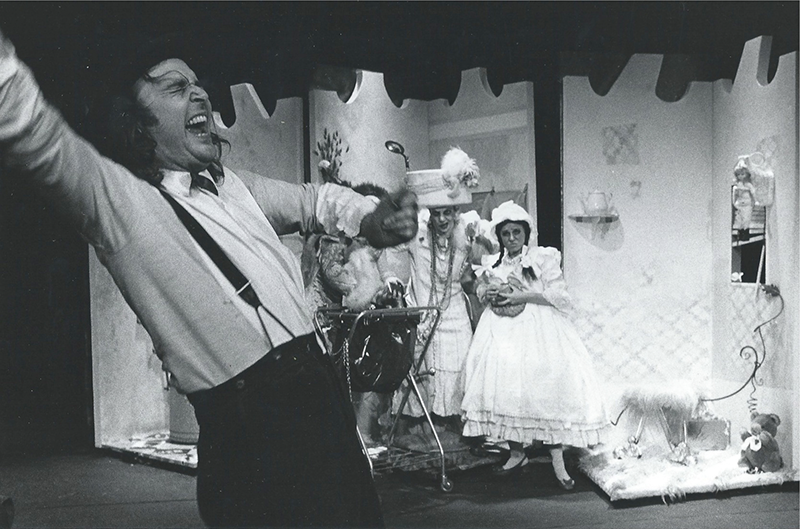
Alongside these initial experiences as a freelance actor our first own productions also emerged; first the founding of the cabaret company ‘Das LiGa’ in Liechtenstein. My brother Mathias and I had always wanted to combine our artistic experiences and work on something together. We assumed that cabaret would be the right track to reach as diverse an audience as possible in the country. The motto, taken from Bert Brecht, was to stimulate thought and discussion in an entertaining way. And so, together with the musician Marco Schädler, ‘Das LiGa’ (the Liechtenstein Gabarett, later ‘Ospelt, Ospelt & Schädler’) was born, and ran for the next 25 years.
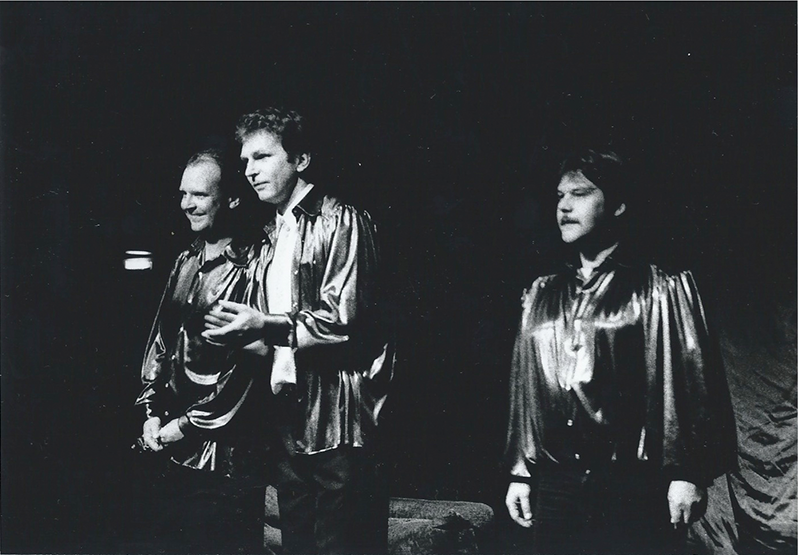
Another organisation I co-founded was the theatre company TRIAD together with Eveline Ratering and the production manager Gabi Bernetta. Again it was the desire to do something original and autonomous. Our first production, ‘Ithaka forever’, was a theatrical creation that dealt thematically with the coexistence and togetherness of man and woman, with work and family, mirrored by the archetypal couple Odysseus and Penelope. This production premiered in 1999 at the Theater am Kirchplatz in Schaan.
In 2007 my wife Eveline Ratering switched from acting to directing. Suddenly we were no longer working together as acting colleagues, but in the new constellation as actor and director. This was admittedly challenging at first, but ultimately very exciting and productive. Our productions were subsequently invited to various festivals at home and abroad.
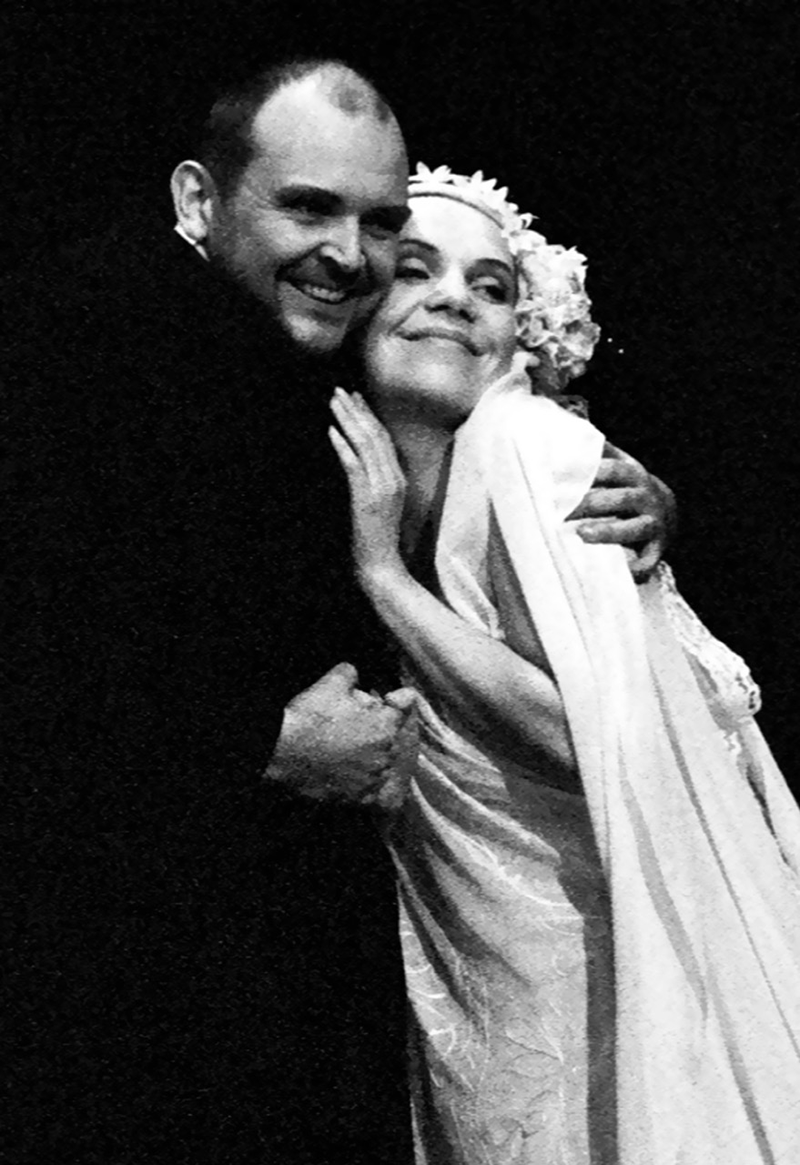
With an art grant from the Liechtenstein Cultural Foundation in 2001/2002, I was able to spend a whole year concentrating on the theme of ‘storytelling’. During this year of research, I met with various artists in Italy and Germany, with griots from West Africa and performers from the former Soviet Union. All of them specialists in storytelling. A storytelling theatre series then emerged from this exchange. Together with Eveline Ratering I produced the ‘Outsider Trilogy’ in the Schlösslekeller Vaduz: ‘Wie der Hagsticker dreimal die letzte Ölung erhielt’, ‘Die goldene Boos’ and as a conclusion, ‘Wohin’. Three plays that dealt with fates in the context of political and social change in Liechtenstein. After the final production I concentrated more on working in Zurich.
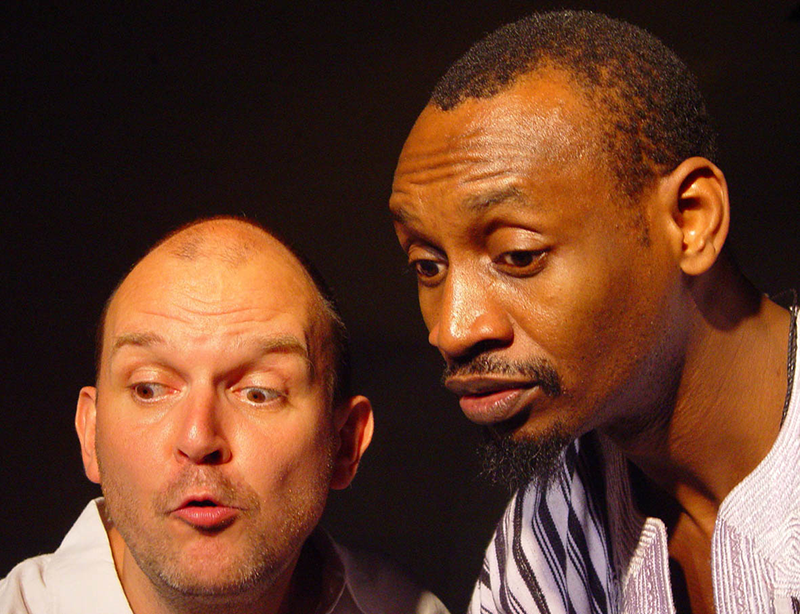
At the Winkelwiese Theatre in Zurich I then worked a lot with the independent theatre company ‘Trainingslager’ (2008-2015) with the director Antje Thoms and the author Jens Nielsen. That was also an extremely enjoyable and satisfying phase.
Subsequently I began to give occasional guest performances at municipal theatres. For three years I worked as a ‘permanent’ guest performer at the Bern City Theatre, as well as in Lucerne and at the Schauspielhaus Zurich. And time and again in the independent theatre scene. The opportunity to work in such diverse groups, from city theatre to the independent scene, is ideal for me.
In the last few years more and more film offers have come my way, which has been very enriching for me. Working as a film actor is more different from working on stage than one might imagine. Here there is something new for me to learn again, and I find that exciting.
Two years ago I was able to live in the Berlin Atelier of the Liechtenstein Cultural Foundation for six months. I used the time in Berlin to see a lot of theatre, to make contacts, but also simply to work for myself; this half year was a phase of inspiration that once again enriched my work as an actor.
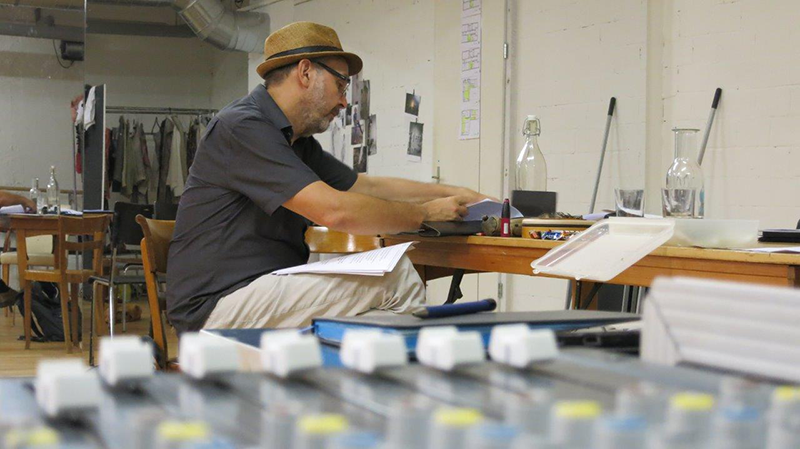
Were there certain people who were formative for your career?
At the Schauspiel Akademie, it was especially the lecturer for voice training, Waltraud Schlingplässer-Gruber, from whom I learned a lot. Much of what she taught me at that time I only really understood years later with increasing professional practice.
During my time at the German municipal theatres there were two directors – Gerhard Jelen with whom I had worked in Oberhausen and later the Bulgarian director Peter Stoychev. Both introduced me to working techniques that were new to me and significantly broadened my horizon in terms of acting experience.
The Italian director and actress Serena Sartori was also an important person in my life, artistically but also as a friend. With her, Eveline Ratering and I developed our first theatre project. Serena Sartori came from the Italian tradition of free theatre of the 1968s, was a founding member of the internationally renowned troupe ‘teatro del sole’ in Milan and was very close to the theatrical style of Peter Brook as well as Ariane Mnouchkine in Paris. With her I was able to experience theatre in an international context.
The work with the Zurich theatre formation ‘Trainingslager’ around the director Antje Thoms and the author Jens Nielsen in the years between 2008 and 2015 also had a formative quality for me. In this company we worked with ready-written plays by Jens Nielsen. He virtually wrote the roles for us actors; his texts can almost be formally classified as absurdist theatre, with a great poetic power. Characteristic of the work with Training Camp was a comedic and powerful style of acting, with a very precise treatment of language.
And finally the collaboration with Eveline Ratering, my partner, with whom I had worked on the first small projects very early on in our training days right up to today’s productions with TRIAD, remains very formative. The discourse that we have been cultivating together for almost 40 years now has remained alive and because we have known each other so well for so long, we can draw on a very broad wealth of experience. Our productions always have a social background and we work intensively with the technique of research. These works are kind of my favourite, because they arise so much from our experiences, our engagement with the world and people.
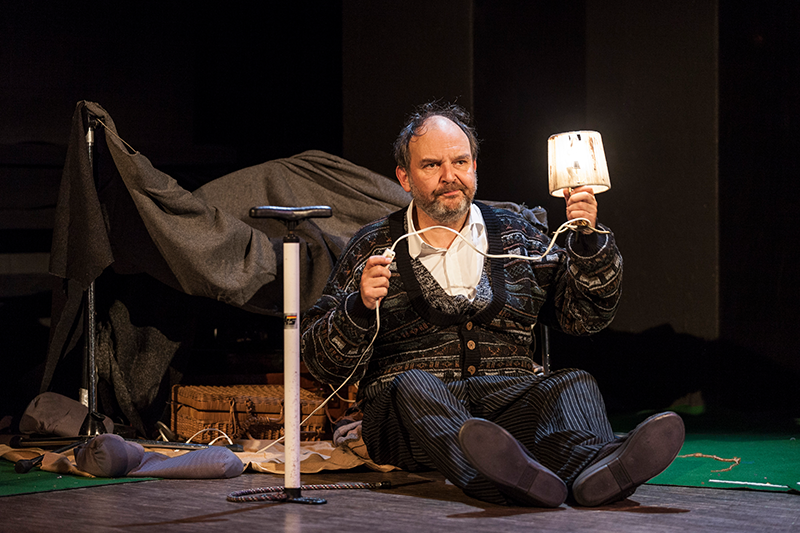
For film it’s hard for me to name one person who was formative for my work. Most likely the director Stefan Haupt, he was the first film director to cast me in a major role.
The collaboration between actor and director in film is very different from that in theatre. In theatre I work with the director for practically six weeks; there are rehearsals almost every day, the exchange is very intensive. For a shoot, the contact with the director is shorter, we discuss things, rehearse the scenes at short notice before the take. As an actor I usually do the preparatory work for the film alone.
Has your environment supported you in your career?
My wife has always supported me, motivated me, critically questioned me and encouraged me to keep going, not to rest on my laurels, and ultimately always celebrated my successes.
My brother Mathias was and is the silent observer of my work; he too is critical, but also likes to praise loudly when something is successful.
My parents were rather sceptical at first because of the precarious work situation in this profession, my father a little more than my mother. Over time this changed and they became more sympathetic. My father, for example, accompanied and supported me in the development of the Outsiders’ Trilogy, took an interest in the subject with me. That was a very touching moment.
And the fact that my mother encouraged me to try acting after a school theatre performance in which I had played the lead role certainly encouraged me to realise my career aspirations.
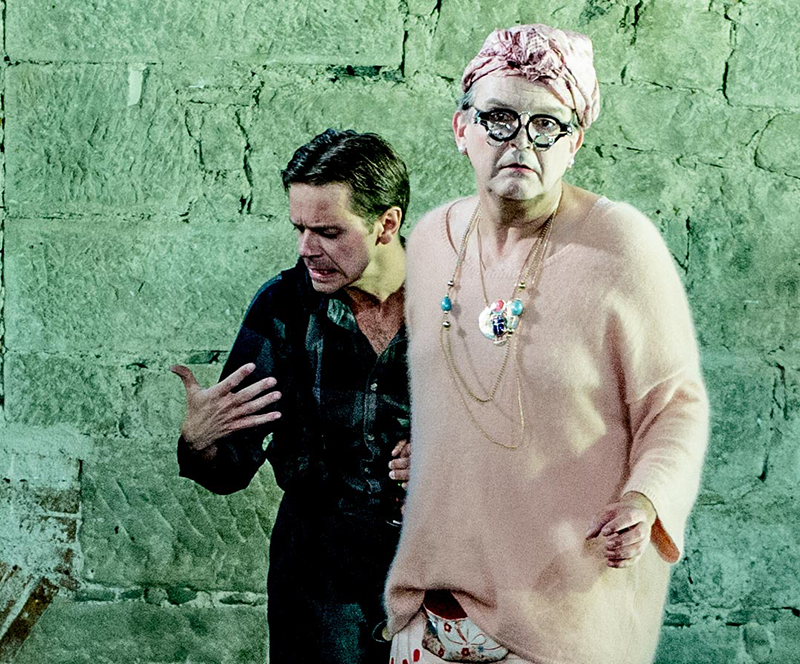
What are your current activities?
As far as my professional activities are concerned, many projects were slowed down in the first half of the year due to Corona; some were postponed, others were fortunately able to run shortly after the first lockdown was partially lifted.
Our theatre project ‘Eisbombe’, a German-language premiere, is being performed in April 2021 in Zurich at the Theater an der Winkelwiese, the Swiss shooting for Michael Steiner’s new feature film was done in July 2020, and another project in September. Currently I have been performing with the theatre company ‘Theater Marie’ in the play ‘Geld/Parzival’ until recently in Bregenz and Baden/CH. The last performances in Bregenz were postponed until January 2021 due to the second lockdown in Austria. We recently had the pleasure of performing a staged reading of ‘Ludwig und Gloria oder die Orchidee’ by and with Letizia Fiorenza as well as with Eveline Ratering, David Sautter and I, in front of an audience of 50, of course. Then in October my first audio book was published by Diogenes, ‘The Last Prince’ by Steven Price, which I am very pleased about. And currently Eveline and I have started the preliminary rehearsals for a new play which will follow the theme of our first TRIAD play ‘Ithaka – forever’. Apart from that I am very happy that I can regularly read audio books for the SBS, the Swiss Library for the Blind.
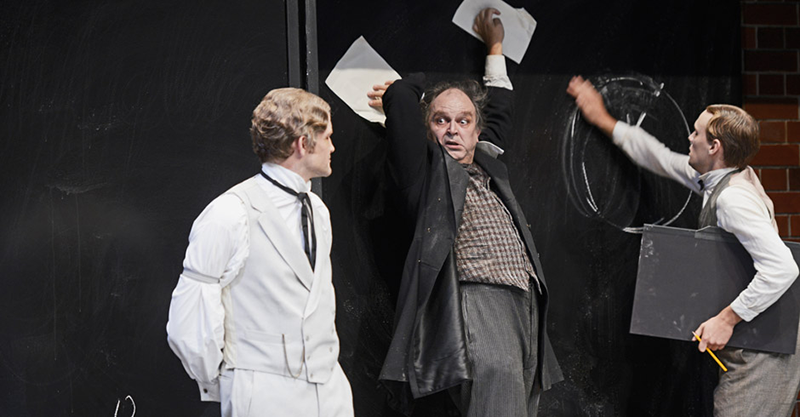
Does what you are currently doing fulfil you?
Actually, my work which I have been doing professionally for about 35 years still fulfils me very much; I can deal with topics that interest me, it is exciting to work together in new constellations and a joy to perform in front of a curious audience. Sometimes I get the feeling that this journey will never be over.
But under the current circumstances, this work cannot be fulfilling for us performing artists. The restrictions in the cultural field are massive, planning projects is almost impossible, performances and shoots are repeatedly postponed or cancelled altogether.
The conditions that would be necessary for me to be able to do my work are not present at the moment, or only with difficulty.
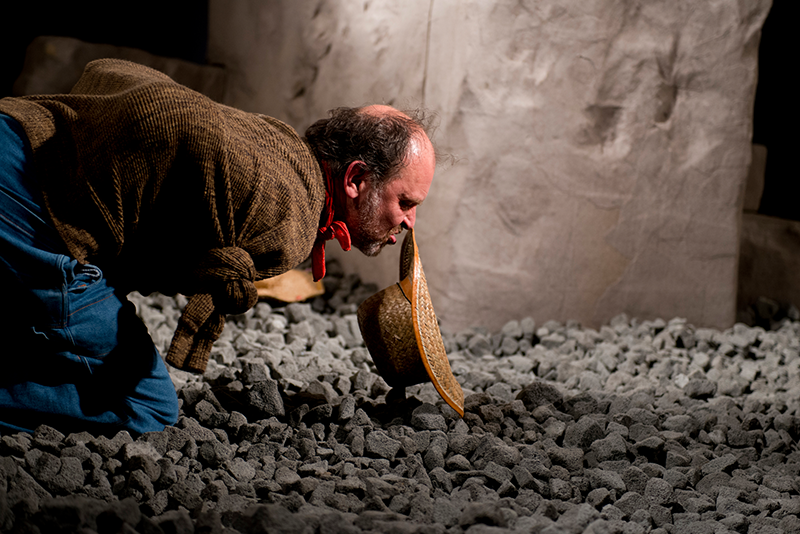
Do you think that you yourself have an influence on whether your activities are fulfilling?
What I do is fulfilling when it is important to me and I carefully consider what I am doing.
A self-chosen activity can be fulfilling, but does not necessarily have to be successful.
I remember individual projects whose creation completely fulfilled me and of whose importance I was convinced, both in terms of content and form. Unfortunately they did not find the resonance I wanted with the audience.
And conversely, performances were celebrated by the audience that I, as a participant, experienced as weak productions because in my opinion they were developed carelessly, because there was nothing at stake or because they were too simple.
I do not have a strategy for success in this sense.
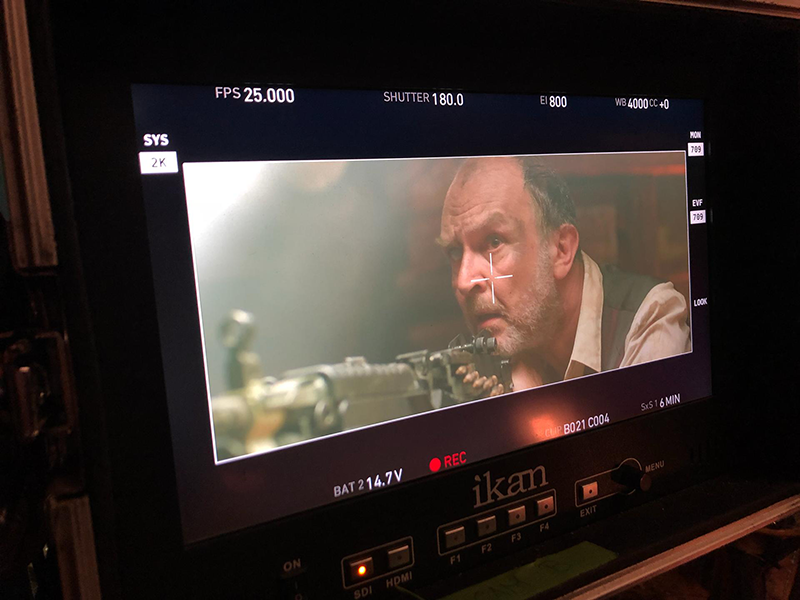
What or who inspires you in everyday life?
Looking at the world from a different angle inspires me. Also anything that sparks my curiosity, that surprises me.
It doesn’t have to be sudden and abrupt. I can experience something like that when I sit on a bench and watch people or animals, watch children playing.
And of course I also like to be inspired by other artists; Miranda July, for example, is an artist who inspires me a lot. But sometimes a good conversation is enough.
Ultimately as a self-confessed ADHD person, inspiration is not so much the problem for me; it’s more difficult to focus. In art it is well known that 10 per cent is inspiration, 90 per cent is perspiration!
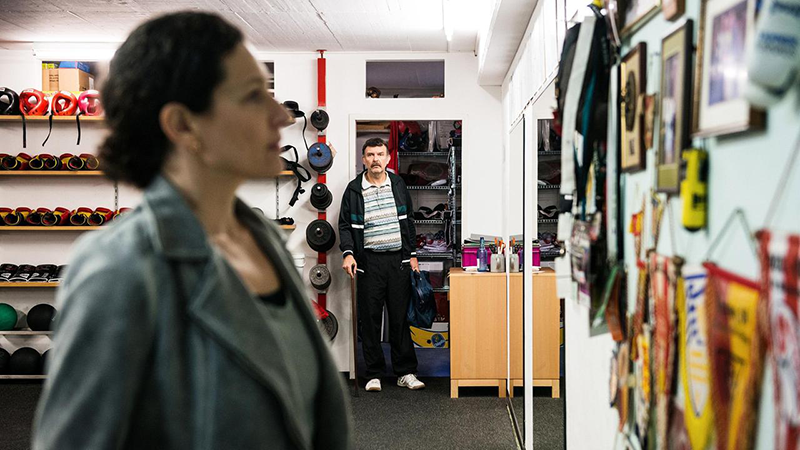
What or who gives you strength and energy in everyday life?
Nature, my two grandchildren and of course music, literature, films, theatre, dance, in short: art! But also meetings with curious and interesting people, physical training, good food (and cooking now and then), success stories amid the great flood of negative news.
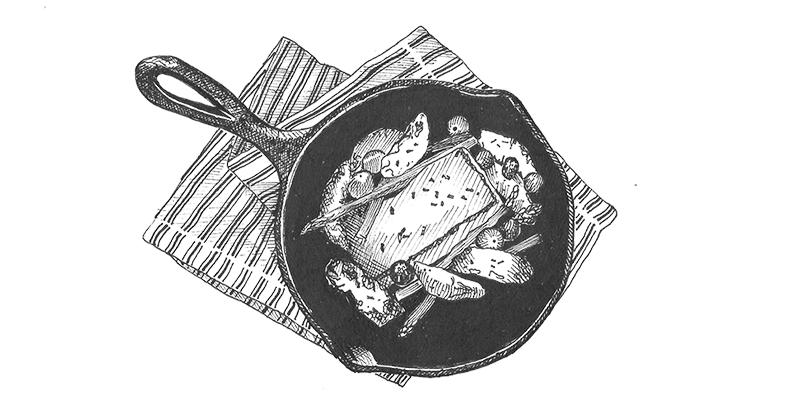
There are ‘magic moments’ when everything seems to fit. Moments that fulfil, inspire and give strength. Moments that confirm that the effort is worthwhile and that what you do is meaningful and valuable. Have you already experienced such moments in relation to your own activities?
When two people meet for the first time, when the proverbial spark jumps and something like ‘love at first sight’ happens – that is a classic magic moment for me. Applied to my work this means: when something flows between the stage and the audience in a performance, when a bond develops between the actors and the audience, when inspiration occurs in the truest sense, that is what I would call a magic moment.
In film I have experienced a different kind of magic moment: In the TV film ‘Lina’ I played a civil servant who organises a compulsory welfare measure for an underage woman. A very unsympathetic character. When I saw the film for the first time I was very irritated; this character was so foreign to me that I didn’t even recognise myself at first (but maybe I just didn’t want to recognise myself), even though I knew I was playing this role. The magic moment here was that during the recording I must have hit something unconsciously in my acting, which virtually took on a life of its own and then created this character out of me. What it was exactly, I can’t say.
Do you actively do something for it, so that such ‘magic’ moments can happen?
For a theatre piece we asked the Swiss former world ski jumping champion Walter Steiner how he prepared mentally for a competition. He told us that shortly before the competition he always imagined his place of strength – a real place that was very important to him. This gave him the necessary concentration and calmness for the competition.
Before a stage performance or a day of filming, I briefly imagine the performance of the task as positively as possible and then immediately detach myself from this imagination. Immediately before the performance or take, I try to make myself ‘empty’ inside, knowing that everything is prepared. The goal is that ‘it’ happens to me in the moment, I want to be immediate, not simply reel off or reproduce my role, my text.
That doesn’t always happen, but when it does, it’s like a magical moment, a moment of glory.
Are there moments when you doubt what you are doing?
In the current discussion about systemic relevance, as an actor I am occasionally gripped by doubts about the importance of what I do.
But why do I always have to prove it? Do I really have to?
In the past I would have dealt with these doubts with myself, but today I try to talk to people who are close to me. If that doesn’t help, I try Samuel Beckett: ‘Fail. Fail again. Fail better.’
In retrospect, can you find something positive in difficult moments?
I experienced a difficult moment after my first theatre engagement in Germany.
Although the theatre management wanted to keep me, I did not renew my contract and promptly did not find follow-up work. My wife and I had just become parents, unemployment worried me a lot and I was quite desperate.
In this situation I went through a phase of self-questioning: What do I actually want? What do I want with my work? Where do I want to go? What do I have to do? What do I have to change?
Looking back, this negative experience of short-term unemployment was very decisive for me, even though it was extremely challenging for me at the time. I had thought a lot about myself and my work during this crisis, then drew conclusions from it and that enabled me to take a step further.
In retrospect I learned the most from supposed failures. Certainly not always, but ideally I managed to transform negative experiences into experiential values, to ultimately understand them as something valuable.
Is there anything you would do differently in retrospect?
There were times when I wished I had been more self-confident as a young man, more courageous.
But I am who I have become through the life I have lived so far. And on the whole I’m happy with it.
Do you want to contribute to society with your activities?
I like to enter into a discussion with society with what I do. For me that means finding topics that are of interest to me and to the public. To create an artistic understanding of these topics. And if the audience enjoys what I create, be it a theatre performance, a film or a story, I am satisfied. Entertaining cleverly, not necessarily simply and definitely in a meaningful way. Creating resonant spaces, posing my questions to the world and society in such a way that the audience can find themselves again, searching for answers without me having to give answers.
Is the recognition of other people or the public important to you?
As an actor, I depend on the audience as an interlocutor. If a performance goes well, then a flow between stage and audience is noticeable, that is essential for me. In this respect, recognition is important to me.
Of course that doesn’t mean that I court the audience’s favour. I put something up for discussion and there are different opinions. It can happen that I disappoint the expectations of some of the audience. Both sides have to live with that.
How well can you live from what you do professionally?
I would say that I can make a decent living from my profession, at least I could until Corona. I have been working as a freelancer for a good 20 years, I am not employed by a theatre or any other institution; the mix of various activities, my work as a freelance actor in city theatres and the independent scene, as a speaker, and as a performer for film and television, various jobs in coaching for companies has developed very positively for me.
Due to the uncertainties surrounding the current pandemic, planning in my sector is currently at a standstill. My work takes place almost exclusively in direct contact with people and as long as this is considered critical, my job is not guaranteed. Of course, this has an impact on my everyday life.
Is there something that is particularly occupying you at the moment?
Apart from the fact that I am very concerned about our current professional situation, I fear that this crisis is promoting a lot of bad things. The populism that is spreading, nationalism, everyone looking out for themselves, the questioning of basic democratic values, etc.
And then, as a theatre maker, I am annoyed by the way art and culture are being portrayed as irrelevant to the system in this crisis. But art and culture are not just ‘nice to have’, they are cornerstones of our society.
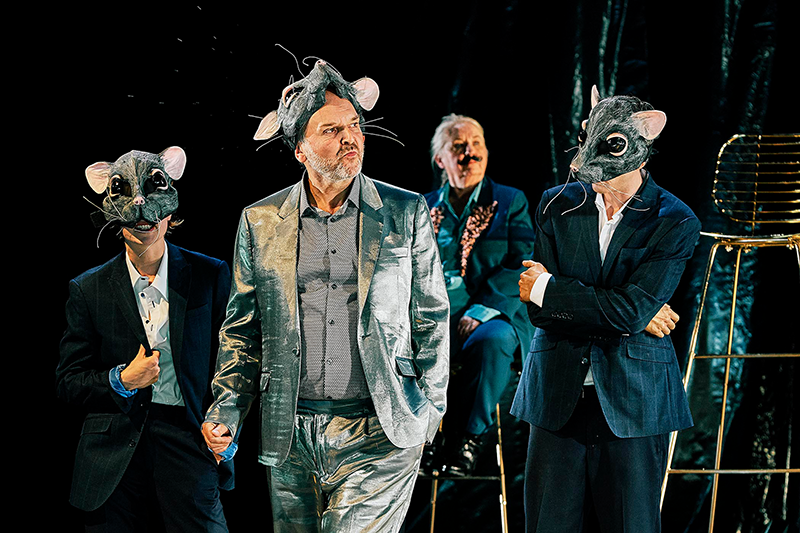
Is there something you would like to (increasingly) spend time on in the future?
I will be 60 years old next year; in ice hockey you would speak of the beginning of the third period. And since I always like to draw parallels to sport, I see it similarly with this phase of life. The final curtain is looming, it’s time to concentrate once again on one’s tasks. For this new phase I would like to deal more intensively with how I personally can engage with our planet better and more mindfully, so that my grandchildren will also have a chance to live a contented life. What is the future of our society? Will we all still have jobs in the future? If not, what will we do then? What alternatives are there to the money economy? Bartering, what could that look like? What about neighbourly help?
I wish to stay awake, to be courageous, to stay active.
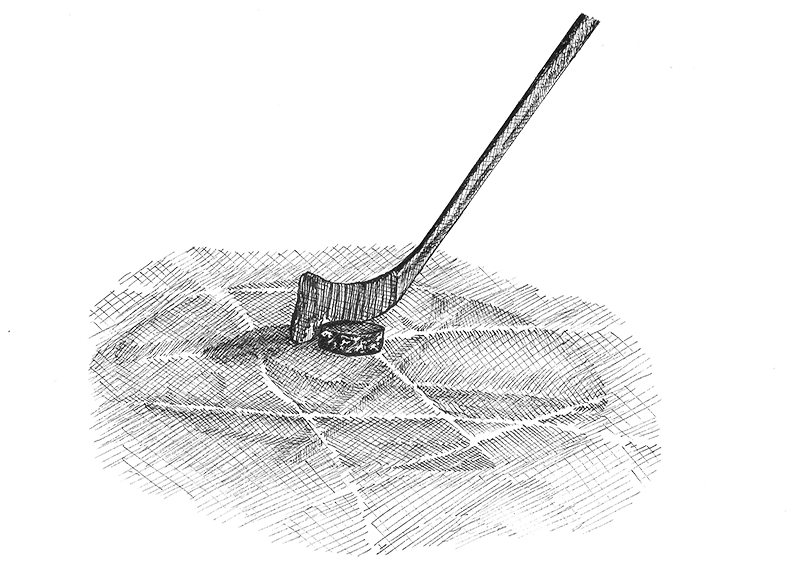
What are you most grateful for in life?
I am very grateful for my ‘robust’ health so far; for the opportunities to do my work without censorship or oppression. Also for the impulses that spur me on to continue learning, to take an interest in life.
Interview
Laura Hilti, December 2020
Illustrations
Stefani Andersen
Links
www.ingo-ospelt.ch
www.evelineratering.ch
www.luckypunch-berlin.de
www.theatermarie.ch
www.winkelwiese.ch
www.schloesslekeller.li
www.literaturhaus.li
www.sbs.ch
www.diogenes.ch
Recommendations
Books
Fiction: «Aus der Zuckerfabrik», Dorothée Elmiger
Non-fiction: «Vita activa», Hannah Arendt
Classics: «Ulysses», James Joyce
Music
Classical: Eislermaterial, Goebbels, Ensemble Modern & Josef Bierbichler
Audio book: «Der letzte Prinz», Diogenes Verlag, ready by Ingo Ospelt
Tip: «American Utopia on Broadway», David Byrne
Films
Series: «The Queen’s Gambit», Scott Frank
Film: Nomadland, Chloé Zhao
Documentary: Visages Villages JR & Agnès Varda
Credits
Portrait photo: Ariane Pochon
Pupils’ Theatre LG: LG Vaduz
Group picture Hotel Hirschen, Rehearsal: privat
Kabale & Liebe: Stadttheater Pforzheim
Die Irre von Chaillot: Claude Giger
Das LiGa, Ithaka für immer: Uve Harder
Gold: Schlachthaus Bern
Das Ding: Sven Beham
So fängt es an: S. Teuwissen
Bartleby: T+T Fotografie
Sicht auf Nichts: Thomas M. Jauk
DSAU: ZHdK
Tatort SRF: SRF
Gold/Parzival: Anja Köhler
This interview is part of the project ‘Magic Moments’ by Kunstverein Schichtwechsel, in which people are interviewed about their careers, activities and their magical as well as difficult moments.
Curated by Stefani Andersen and Laura Hilti, Kunstverein Schichtwechsel.
Supported by Kulturstiftung Liechtenstein and Stiftung Fürstl. Kommerzienrat Guido Feger.
>>> All interviews
